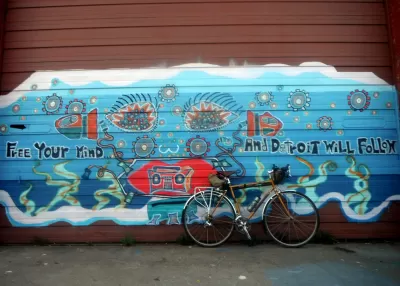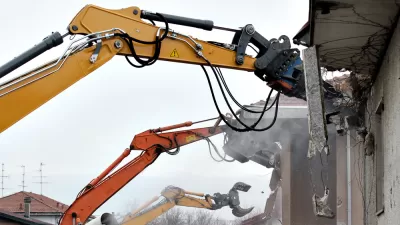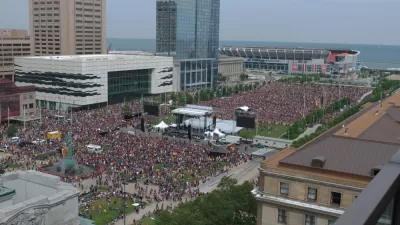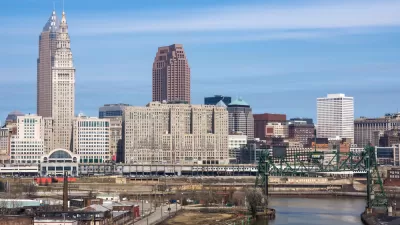In a piece for CityLab, Richey Pipparinen argues that trigger-happy city officials need to slow down their push to demolish homes.

Shrinking rust belt cities often manage decline by getting rid of vacant housing. In the short term, that means unsightly and unloved buildings are demolished or literally burned down in some cases. "The problem, of course, is that if you manage decline you are likely to get, well, decline," Richey Pipparinen writes for CityLab. Pipparinen reports that, increasingly, studies are showing that this strategy doesn't lead to turnarounds and neighborhoods that have dramatically reduced their housing did not see their housing market bounce back.
"Perfecting managed decline is an example of the 'fallacy of the first attitude,' a term Lewis Mumford used when describing how leaders make decisions on the assumption that yesterday’s trend lines will carry on indefinitely," Pipparinen argues. Instead of adopting a defeatist attitude toward cities and neighborhoods, city officials would do better to use their existing assets to prepare for a future that is uncertain—for growing and shrinking cities alike.
FULL STORY: 'Smart Decline' Is Dumb

Planetizen Federal Action Tracker
A weekly monitor of how Trump’s orders and actions are impacting planners and planning in America.

Maui's Vacation Rental Debate Turns Ugly
Verbal attacks, misinformation campaigns and fistfights plague a high-stakes debate to convert thousands of vacation rentals into long-term housing.

San Francisco Suspends Traffic Calming Amidst Record Deaths
Citing “a challenging fiscal landscape,” the city will cease the program on the heels of 42 traffic deaths, including 24 pedestrians.

Amtrak Rolls Out New Orleans to Alabama “Mardi Gras” Train
The new service will operate morning and evening departures between Mobile and New Orleans.

The Subversive Car-Free Guide to Trump's Great American Road Trip
Car-free ways to access Chicagoland’s best tourist attractions.

San Antonio and Austin are Fusing Into one Massive Megaregion
The region spanning the two central Texas cities is growing fast, posing challenges for local infrastructure and water supplies.
Urban Design for Planners 1: Software Tools
This six-course series explores essential urban design concepts using open source software and equips planners with the tools they need to participate fully in the urban design process.
Planning for Universal Design
Learn the tools for implementing Universal Design in planning regulations.
Heyer Gruel & Associates PA
JM Goldson LLC
Custer County Colorado
City of Camden Redevelopment Agency
City of Astoria
Transportation Research & Education Center (TREC) at Portland State University
Jefferson Parish Government
Camden Redevelopment Agency
City of Claremont





























